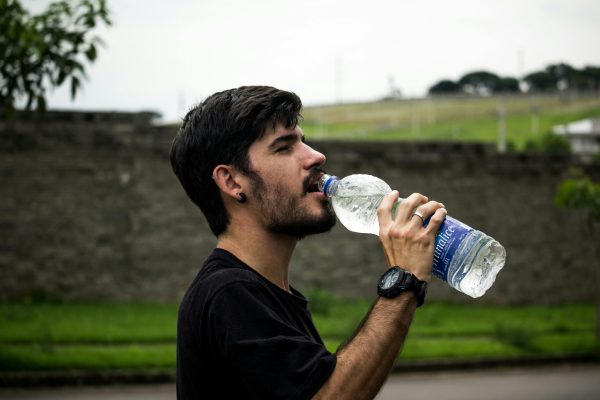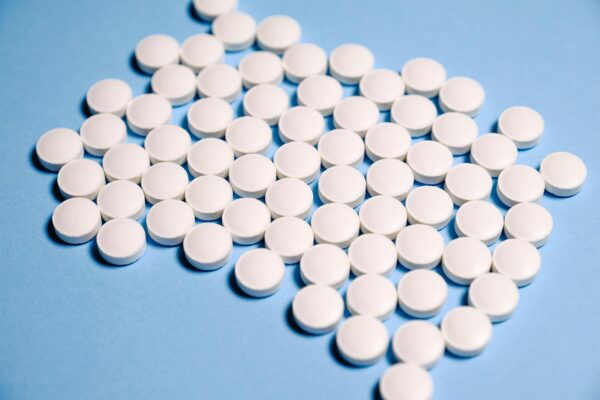Testosterone. It’s a word that brings to mind strength, vitality, and masculinity. But what exactly is testosterone, and why is it so crucial for our well-being? Whether you’re a man noticing changes as you age or simply curious about how hormones affect your body, understanding testosterone is key to unlocking vitality.
- What is Testosterone?
- Understanding Testosterone Deficiency
- What is Testosterone Replacement Therapy (TRT)?
- Benefits of Testosterone Replacement Therapy
- Potential Risks and Side Effects
- Who Should Consider TRT?
- Administering Testosterone Replacement Therapy
- Lifestyle Changes to Complement TRT
- Monitoring and Adjusting Treatment
- TRT Myths and Misconceptions
- Success Stories of Testosterone Replacement Therapy (TRT)
- Increased Energy and Vitality
- Improved Mood and Mental Health
- Enhanced Muscle Mass and Physical Strength
- Renewed Libido and Sexual Health
- Better Bone Health
- Case Studies on Testosterone Replacement Therapy (TRT)
- Case Study 1: Improved Quality of Life in Older Men
- Case Study 2: TRT and Bone Density
- Case Study 3: TRT and Cardiovascular Health
- Case Study 4: TRT and Sexual Health
- Case Study 5: TRT in Younger Men
- TRT and Aging
- Legal and Ethical Considerations
- Conclusion
What is Testosterone?
Testosterone is a hormone primarily produced in the testes in men and in smaller amounts in the ovaries and adrenal glands in women. It plays a pivotal role in the development of male reproductive tissues, the growth of body hair, and the increase in muscle and bone mass. But its influence goes beyond the physical. Testosterone also affects mood, energy levels, and overall well-being.
Importance of Testosterone in the Body
Beyond its association with physical attributes, testosterone is vital for numerous bodily functions. It supports cardiovascular health, influences cognitive abilities, and maintains libido. Essentially, testosterone is a cornerstone of health, impacting both the body and mind.
Understanding Testosterone Deficiency
Despite its importance, testosterone levels can decline due to various reasons, leading to a condition known as testosterone deficiency or low T.
Causes of Low Testosterone Levels
Several factors can contribute to low testosterone levels, including aging, medical conditions like diabetes, obesity, chronic illnesses, and certain medications. Lifestyle choices, such as poor diet and lack of exercise, can also play a role.
Symptoms of Testosterone Deficiency
The symptoms of low testosterone can be subtle or pronounced, varying from person to person. Common signs include fatigue, depression, reduced libido, difficulty concentrating, loss of muscle mass, and increased body fat. Recognizing these symptoms is the first step toward seeking help and regaining vitality.
What is Testosterone Replacement Therapy (TRT)?
For those experiencing the effects of low testosterone, Testosterone Replacement Therapy (TRT) offers a potential solution.
Overview of TRT
TRT involves supplementing the body with testosterone to restore levels to a healthy range. This therapy can be life-changing for individuals struggling with the symptoms of low T, providing a way to reclaim energy, mood, and overall quality of life.
Different Forms of TRT
TRT is available in various forms to suit individual preferences and medical needs. These include injections, topical applications, oral medications, and pellets. Each method has its own advantages and considerations, making it essential to choose the right one with the help of a healthcare provider.
Benefits of Testosterone Replacement Therapy
The benefits of TRT can be profound, impacting physical, mental, and sexual health.
Physical Health Benefits
One of the most noticeable benefits of TRT is an improvement in physical health. Increased muscle mass, reduced body fat, and enhanced energy levels are common outcomes. TRT can also support cardiovascular health, potentially lowering the risk of heart disease.
Mental Health Benefits
Testosterone has a significant impact on mental well-being. Many individuals report improved mood, reduced symptoms of depression, and better cognitive function after starting TRT. The boost in energy levels can also enhance motivation and overall outlook on life.
Sexual Health Benefits
For many, the most compelling benefit of TRT is the positive effect on sexual health. Increased libido, improved erectile function, and a more satisfying sexual experience are often reported by those undergoing therapy.
Potential Risks and Side Effects
As with any medical treatment, TRT comes with potential risks and side effects.
Common Side Effects
Common side effects of TRT can include acne, sleep apnea, and an increase in red blood cell count. Some individuals may also experience breast enlargement or tenderness.
Long-term Risks
Long-term risks of TRT are still being studied, but concerns include the potential for increased cardiovascular risk, prostate growth, and the impact on fertility. It’s crucial to discuss these risks with a healthcare provider before starting therapy.
Beyond Masculinity: Exploring the Diverse Functions of Testosterone
Who Should Consider TRT?
TRT is not for everyone, and understanding who can benefit most from it is essential.
Ideal Candidates for TRT
Ideal candidates for TRT are typically men with clinically low testosterone levels and associated symptoms. These individuals often experience significant improvements in quality of life with therapy.
Contraindications
Certain conditions may contraindicate TRT, including prostate or breast cancer, untreated sleep apnea, and severe heart conditions. A thorough medical evaluation is necessary to determine suitability for TRT.
How to Get Started with TRT
If you suspect low testosterone, the journey to starting TRT involves several steps.
Diagnosis and Testing
A proper diagnosis begins with a detailed medical history and physical examination. Blood tests are essential to measure testosterone levels accurately. It’s important to conduct these tests in the morning when testosterone levels are typically highest.
Choosing the Right TRT Method
Selecting the appropriate TRT method involves considering factors such as convenience, cost, and personal preference. A healthcare provider can help guide this decision, ensuring the chosen method aligns with the individual’s lifestyle and health needs.
Administering Testosterone Replacement Therapy
TRT can be administered in various ways, each with its own process and considerations.
Injection Methods
Injections are one of the most common forms of TRT, administered either intramuscularly or subcutaneously. They typically require regular visits to a healthcare provider or self-administration after proper training.
Topical Applications
Topical applications include gels and patches applied directly to the skin. These methods offer a steady release of testosterone but require daily application and care to avoid transferring the hormone to others.
Oral Medications
Oral TRT is less common due to potential liver effects but is an option for those who prefer a pill form. Regular monitoring is essential to manage any potential risks.
Pellets
Pellets are implanted under the skin, releasing testosterone over several months. This method provides a long-term solution with minimal maintenance, though it requires a minor surgical procedure.
Lifestyle Changes to Complement TRT
While TRT can be highly effective, combining it with lifestyle changes can enhance results.
Diet and Nutrition
A balanced diet rich in essential nutrients supports overall health and can help maximize the benefits of TRT. Foods high in zinc, vitamin D, and healthy fats are particularly beneficial.
Exercise and Physical Activity
Regular exercise, especially resistance training, can boost testosterone levels naturally and improve the effectiveness of TRT. It also helps maintain muscle mass and reduce body fat.
Sleep and Stress Management
Quality sleep and effective stress management are crucial for hormone balance. Prioritizing rest and finding healthy ways to cope with stress can support overall well-being and enhance the benefits of TRT.
The Sleep-Testosterone Connection: How Getting Good Zzz’s Boosts Your T-Levels
Monitoring and Adjusting Treatment
TRT is not a one-size-fits-all treatment and requires ongoing monitoring and adjustments.
Regular Check-ups
Regular check-ups with a healthcare provider are essential to monitor testosterone levels, evaluate the effectiveness of therapy, and adjust dosages as needed.
Adjusting Dosages
Adjusting dosages is a common part of TRT to ensure optimal results and minimize side effects. This process requires collaboration between the patient and healthcare provider.
TRT Myths and Misconceptions
There are many myths and misconceptions about TRT, and it’s important to separate fact from fiction.
Common Myths
Common myths include the idea that TRT is only for bodybuilders or that it causes aggressive behavior. These misconceptions can prevent individuals from seeking beneficial treatment.
Facts vs. Fiction
Understanding the facts about TRT, such as its benefits for mental health and overall quality of life, can help dispel myths and encourage informed decision-making.
Testosterone and Bone Density: Unlocking the Key to Male Bone Strength
Success Stories of Testosterone Replacement Therapy (TRT)
Hearing from those who have experienced the benefits of TRT can indeed be inspiring and informative. Here are some detailed examples and personal testimonials that highlight the potential positive changes TRT can bring:
Increased Energy and Vitality
John’s Story: John, a 45-year-old office worker, struggled with chronic fatigue and low energy levels. After starting TRT, he noticed a significant boost in his energy. He could engage in activities he had long abandoned, like playing basketball with his kids and going for morning runs. John describes his experience as “getting a second wind in life.”
Improved Mood and Mental Health
Sarah’s Experience: Sarah, a 50-year-old teacher, faced severe mood swings and depression. She felt disconnected from her usual vibrant self. After consulting her doctor and starting TRT, Sarah experienced a remarkable improvement in her mood. She felt more positive, less anxious, and more engaged in her daily activities. Sarah says, “TRT helped me find joy in the little things again.”
Enhanced Muscle Mass and Physical Strength
Mike’s Transformation: Mike, a 38-year-old fitness enthusiast, noticed a decline in his muscle mass and strength despite regular workouts. After starting TRT, he saw a significant improvement in his muscle tone and strength. Mike shares, “TRT gave me the edge I needed to push through my plateaus and achieve my fitness goals.”
Renewed Libido and Sexual Health
Emma and David’s Journey: Emma and David, a couple in their early 50s, experienced a decline in their intimate life due to David’s low testosterone levels. After David started TRT, they both noticed a renewed sense of intimacy and connection. Emma says, “It brought back the spark in our relationship.”
Better Bone Health
Robert’s Recovery: Robert, a 60-year-old retiree, suffered from osteoporosis and frequent fractures. His doctor recommended TRT as part of his treatment plan. Over time, Robert’s bone density improved, and he experienced fewer fractures. Robert states, “TRT played a crucial role in my recovery and overall bone health.”
Don’t Let Hormones Hold You Back: The Importance of Testing Free and Total Testosterone
Case Studies on Testosterone Replacement Therapy (TRT)
Case studies provide detailed insights into the real-world application and outcomes of TRT. Here are a few examples that illustrate the diverse benefits and considerations of TRT:
Case Study 1: Improved Quality of Life in Older Men
Background: A group of men aged 60-75 with clinically low testosterone levels participated in a study to evaluate the effects of TRT on their overall quality of life. Intervention: Participants received testosterone injections over a period of 12 months. Outcomes: The study found significant improvements in mood, energy levels, and physical function. Participants reported feeling more active and engaged in daily activities. Additionally, there was a notable increase in muscle mass and reduction in body fat.
Case Study 2: TRT and Bone Density
Background: A 55-year-old man with osteoporosis and low testosterone levels was recommended TRT to improve bone health. Intervention: The patient received testosterone gel applied daily for 18 months. Outcomes: Bone density scans showed a marked improvement in bone mineral density, reducing the risk of fractures. The patient also reported fewer incidences of bone pain and an overall improvement in physical mobility.
Case Study 3: TRT and Cardiovascular Health
Background: A 50-year-old man with a history of cardiovascular issues and low testosterone levels was monitored to assess the impact of TRT on heart health. Intervention: The patient received testosterone injections bi-weekly for 24 months. Outcomes: Regular monitoring showed stable cardiovascular health with no adverse effects. The patient experienced improved energy levels and reduced symptoms of depression. However, the study emphasized the importance of close medical supervision to mitigate potential risks.
Case Study 4: TRT and Sexual Health
Background: A 45-year-old man experiencing low libido and erectile dysfunction due to low testosterone levels sought TRT. Intervention: The patient was prescribed testosterone patches to be applied daily for 6 months. Outcomes: The patient reported a significant improvement in sexual desire and performance. His partner also noted a positive change in their relationship dynamics. The study highlighted the importance of addressing both physical and emotional aspects of sexual health.
Case Study 5: TRT in Younger Men
Background: A 30-year-old man with hypogonadism and low testosterone levels was evaluated for the effects of TRT on mood and cognitive function. Intervention: The patient received testosterone injections every three weeks for 12 months. Outcomes: The patient experienced improved mood, reduced anxiety, and enhanced cognitive function. He reported better focus and productivity at work. The study underscored the potential benefits of TRT in younger men with clinically low testosterone.
These case studies illustrate the varied benefits of TRT across different age groups and health conditions. They also highlight the importance of personalized treatment plans and regular monitoring to ensure safety and efficacy.
TRT and Aging
TRT is often associated with anti-aging benefits, particularly for older adults.
TRT for Older Adults
Older adults experiencing symptoms of low testosterone can benefit significantly from TRT. It can enhance energy levels, improve mood, and support overall health.
Anti-Aging Benefits
The anti-aging benefits of TRT include improved muscle mass, bone density, and cognitive function. These benefits can contribute to a higher quality of life as individuals age.
The Truth About Testosterone and Aging: What You Need to Know
Legal and Ethical Considerations
Before starting TRT, it’s important to understand the legal and ethical considerations.
Legal Status of TRT
The legal status of TRT varies by country and region. It’s crucial to ensure that any treatment is obtained through legal and reputable channels.
Ethical Implications
Ethical considerations include ensuring that TRT is used appropriately and not for non-medical enhancement purposes. It’s also important to consider the potential impact on relationships and personal life.
Conclusion
Testosterone Replacement Therapy offers a pathway to reclaiming vitality for those struggling with the effects of low testosterone. By understanding the benefits, risks, and considerations, individuals can make informed decisions about their health. Whether through increased energy, improved mood, or enhanced physical health, TRT has the potential to transform lives.
11 Best Male Testosterone Boosters That May Improve Your Performance and Health
Unleash the Power of Testosterone to Build Muscle Fast and Achieve Your Goals





